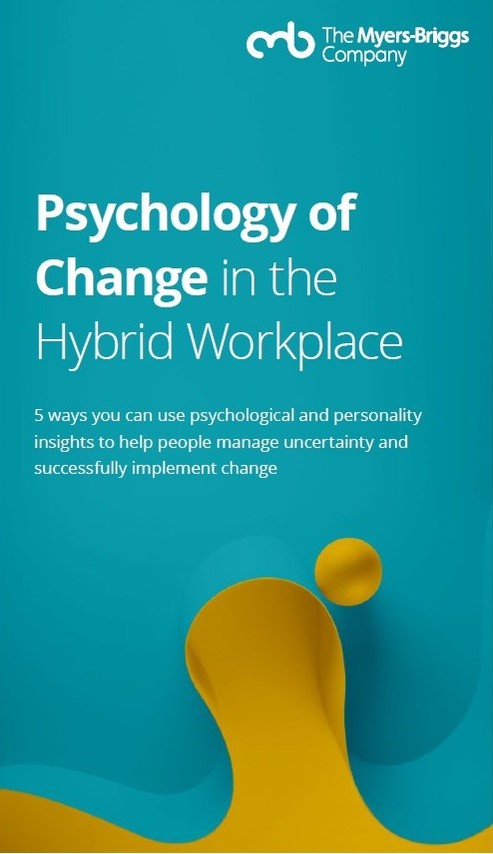
According to research, stress is increasing globally. However, what’s likely to stress someone out and what their behaviors are like under stress are different depending on their personality type.
As the hybrid workplace becomes a new normal for many organizations, it brings specific challenges to managing uncertainty and change initiatives. In Psychology of Change in the Hybrid Workplace, psychologists and personality experts at The Myers-Briggs Company share their knowledge and experience around change management with specific, actionable insights you can use to better deal with change for your team and your employees.
Upcoming research from The Myers-Briggs Company on remote and hybrid working has found interesting relationships between personality type, stress and work arrangements.
“One of the many interesting things we discovered was among entirely remote workers and entirely office-based workers, those with preferences for Intuition (ENFJ, ENFP, ENTP, ENTJ, INTJ, INTP, INFJ, INFP) reported more stress than those with Sensing preferences (ESFJ, ESFP, ESTP, ESTJ, ISTJ, ISTP, ISFJ, ISFP),” says John Hackston, Head of Thought Leadership for The Myers-Briggs Company who conducted the research.
“But among hybrid workers, you don’t get this effect. This may be because people with an Intuitive preference enjoy the variety of hybrid work, so they report less stress. It’s one of the many fascinating findings in our research.”
For many, change can be incredibly stressful, especially when change is constant. And hybrid/remote work has made it harder to connect with colleagues, exasperating stress for many.
With a little insight into psychology and personality differences, people can get what they need to feel empowered during times of change and reduce their overall stress levels. To learn more, download the eBook about psychology, change and the hybrid workplace. Download this stress infographic from The Myers-Briggs Company to learn more.








